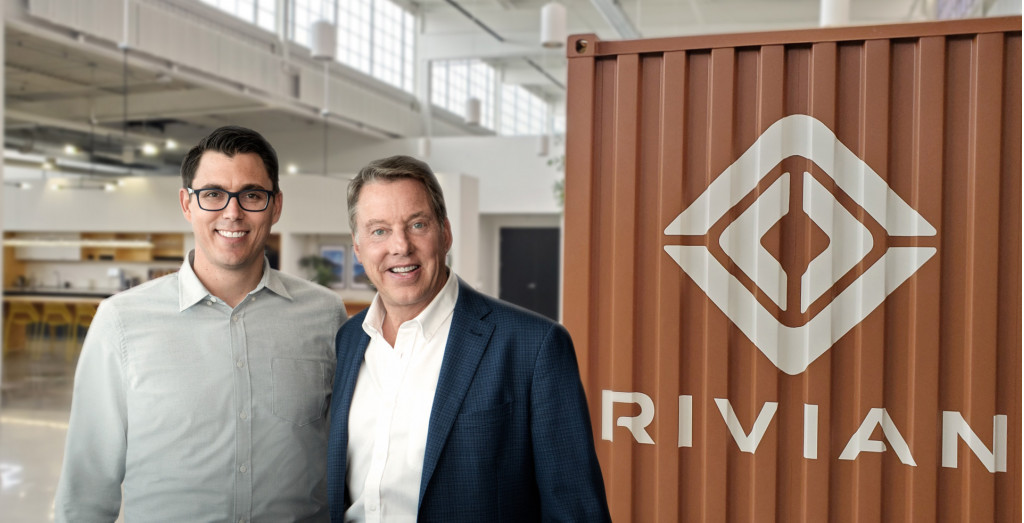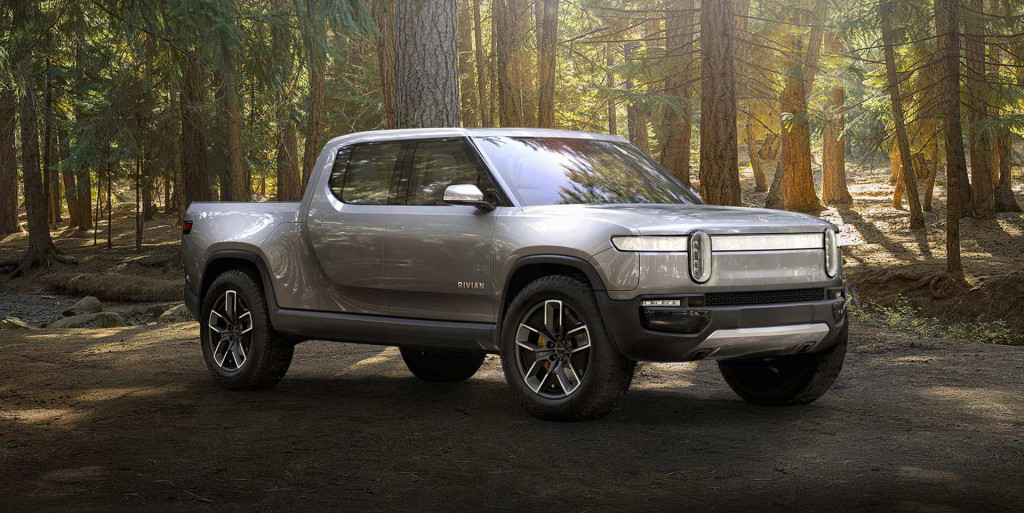Rivian is the only one of a group of well-funded upstart EV makers to have a strong presence in the traditional heart of the American auto industry—the Detroit area.
But according to a Tuesday report from Autoline, the electric truckmaker now has plans to tip the scales a little more toward the West Coast, and it’s in the process of moving some of its Plymouth, Michigan workforce, including future product development, to Irvine, California, where the company just bought a very large facility.
Other Michigan staff will soon be moved to Normal, Illinois, where Rivian plans to produce multiple electric-truck models—including the upcoming R1T pickup and R1S SUV—at a former Mitsubishi plant.
According to the Autoline report, Rivian CEO RJ Scaringe wants all of the company’s tech people in one place; they’re currently split between Michigan, San Jose, and Irvine. While the R1T and R1S were developed in Michigan, future product development will be done in California.

R.J. Scaringe (left) and Bill Ford Jr.
Rivian replied quickly to Green Car Reports to underscore that it isn’t moving all of its operations to California, and there’s no plan to withdraw from Michigan.
According to the company, Rivian currently has 2,300 employees, of which 1,000 are based in California and 750 in Michigan. This move aims to consolidate engineering teams to California “to improve workflows and reduce environmental impact from travel,” according to a statement provided by spokeswoman Amy Mast.
“We’ve recently completed an expansion at our Michigan location and it will remain an important presence for us,” Rivian said in a statement provided by Mast. “We are also committed to creating a vibrant and inviting manufacturing presence in Normal, Illinois, where all Rivian vehicles will be produced. As we grow, we’ll keep evaluating and evolving our footprint and geography.”

Rivian R1T
Rivian won’t be the only one seeking to be partly planted in California. Tesla designed and engineered its vehicles in California but intends to move its headquarters out of California, and to likely shift some of its production to Austin (or Tulsa) for an upcoming plant that will build the Cybertruck and Model Y. Lucid also looks to Silicon Valley for its technology and to California for inspiration in its design, but it’s planning to build its Air electric sedan in Arizona.
Does where a vehicle was engineered, designed, or developed mean much to you? Should pickups and trucks be designed in Middle America? Does it matter? This is one where we’d appreciate hearing your comments below.
